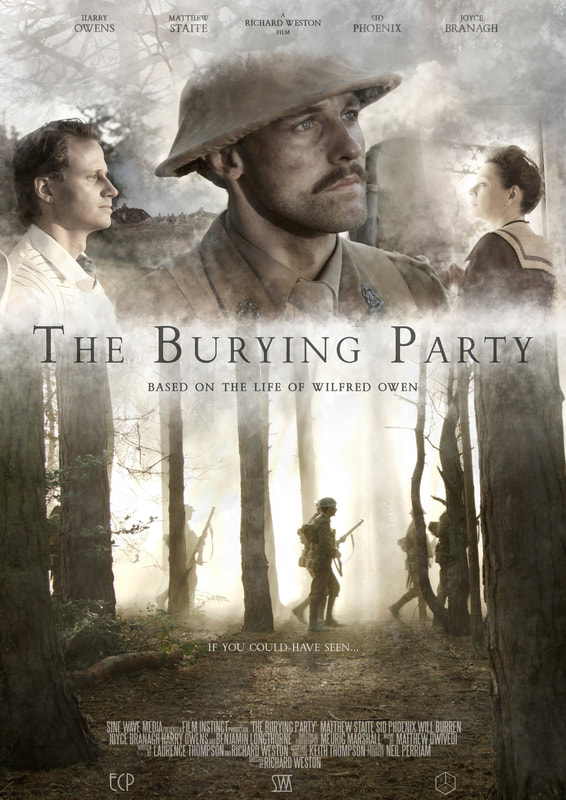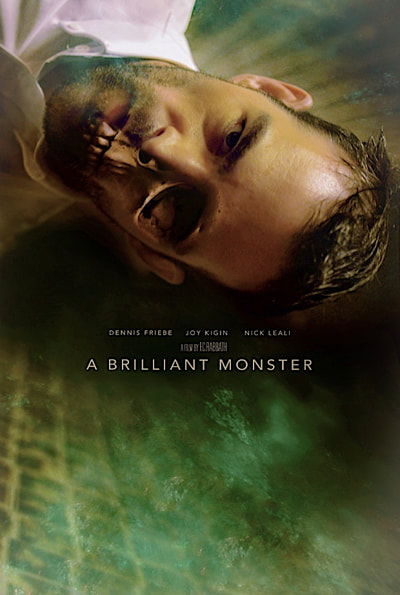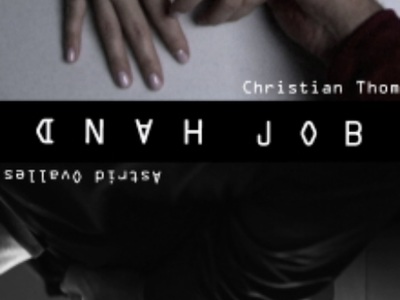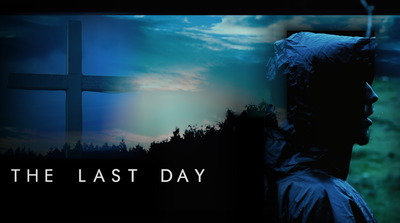|
directed by:
Richard Weston written by: Richard Weston genre: Drama |
Many people are going to watch this film and firmly believe, this is about the poet Wilfred Owen and his war time compositions. Most will understand that like many movies, other sub plots exist simply to flesh out the characters and world of yesteryear. What's interesting - is that they would be correct yet also... not correct. At least not to me. Obviously, Wilfred Owen is known for his poetry - so having his writings take a large part of the story is inevitable. Without his writings - there would most likely be no movie. Right? Yet here's the thing. Not being an avid fan of poetry, I had never heard of Wilfred Owen. I feel that I'm probably not alone but now, after watching "The Burying Party" I have a basic knowledge and appreciation for the him and his work. However, the honest truth is that the poetic narration used in the film, is something I at first thought was made for the film. Or maybe an alteration of a journal. I would have given a supreme compliment to Richard Weston, who wrote and directed this movie, solely on his poetic ability. Now I know better. Not to say the screenplay for this film wasn't really darned good. It clearly was, according to my rating. I'm just saying that without this film, I would have had no idea who Wilfred Owen was... and that's both a great compliment for this film, and a shame for myself.
So other than the obvious, what did I get from the plot? I got a story of shell shock. Known today as PTSD. During the first world war this was the term used, but nowhere near understood. Everyone had their own views on the subject. Some even refused to believe it existed as anything more - than a coward trying to evade returning to the lines. "The Burying Party" has many subtle hints on the subject, as it follows Wilfred Owen through a year of his life. Using a real time narrative painted with flashback scenes, we not only get to the fear this man had, but also the tribulations of dealing with shell shock. "The Burying Party" also deals with relationships of the time, friendships and of course... the poetry. When considering everything I had seen in the film, I had one question that kept entering my mind. How much of Wilfred's poetry was actually caused by PTSD? It's an interesting concept. Would he have been the poet he is considered to be - if he had not become shell shocked. Many artists claim that their mental imbalance is what inspires their works. So as much as Wilfred hated... or pitied the war, as he puts it... would we even know who he was without it? Probably not. So did the war actually make the man? Did the PTSD inspire the works that are loved by so many? Even earlier in the film when having some of his works read, the impression given was that his poems were good... but nothing special. These questions are the reasons I personally relate more with the PTSD side of the story, and although not directly asked in the film, they loom just above the written dialog, poetry and reactions of the cast within the movie.
The technical aspects leave no real room to critique. The visuals are beautifully shot and the pacing/edit is done in a laid back way. Much like so many older movies we consider classics. Wrap this all up with some, at times, heartbreaking (good) acting and you've got a winner - production wise. I can find no real faults here and for a lower budget indie film, this was all truly worth bringing up and complimenting. At the end of the day this is a great piece of work. Maybe a little slow for the modern, casual viewer... but even they could find no real reason to not like the film. I feel Richard Weston has directed and pushed forward an intelligent, thoughtful piece of work. The fact it also looks this good is a bonus. A totally earned four stars. |
|
Other Reviews That May Interest You
|












